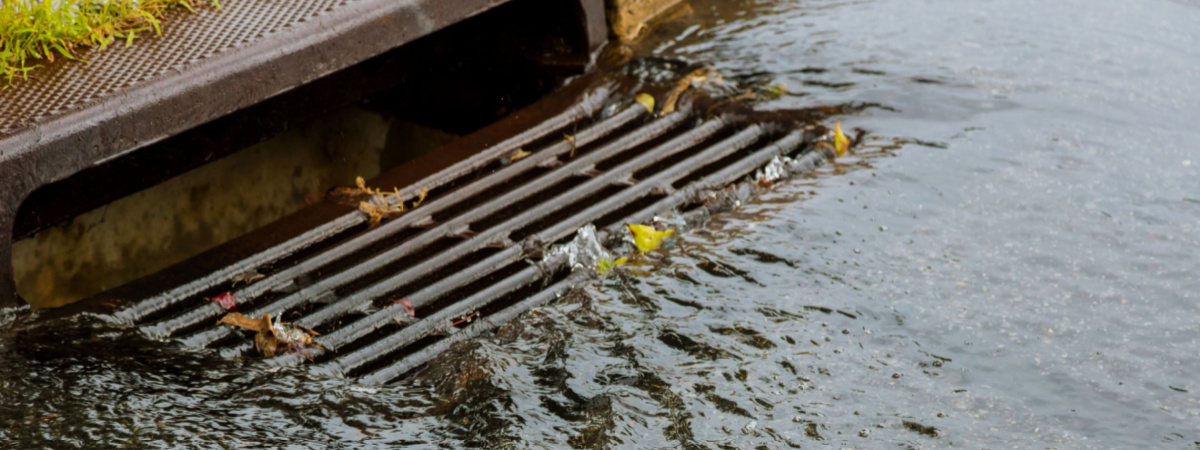The U.S. Supreme Court has sided with the Sacketts against the Environmental Protection Agency to narrow the Clean Water Act.
Continue Reading Supreme Court Issues Decision Sharply Limiting Clean Water Act Jurisdiction over Wetlands

Insights and Commentary on Global Environmental and Energy Issues

The U.S. Supreme Court has sided with the Sacketts against the Environmental Protection Agency to narrow the Clean Water Act.
Continue Reading Supreme Court Issues Decision Sharply Limiting Clean Water Act Jurisdiction over Wetlands

The Maryland Department of the Environment has for many years sought to meet its obligations under the Clean Water Act and the Chesapeake Bay Total Maximum Daily Load in part…
Continue Reading Storm Sewers and Impervious Cover in Maryland: A Further Update

The Biden-Harris administration is quickly establishing new federal environment requirements affecting commercial property owners and managers. These requirements, along with changes occasioned by the COVID-19 pandemic, raise a host of…
Continue Reading The Top 5 New Environmental Issues for Commercial Property Owners or Managers

NOTE: The EPA will be hosting a webinar on this topic on Nov. 2 at 2:00 p.m. EST.
On Oct. 18, 2021, United States Environmental Protection Agency (EPA) Administrator…
Continue Reading Potential Impact of EPA’s PFAS Strategic Roadmap on CERCLA Cleanups

On Monday, the Supreme Court decided Territory of Guam v. United States, No. 20-382 (U.S. May 24, 2021), attempting to clarify which settlements with the United States or…
Continue Reading Only CERCLA Settlements Trigger CERCLA Contribution: Guam v. US
A curious appellate court decision has Pennsylvania environmental law practitioners scratching their heads about the status of certain waterways.
No, we do not reference the U.S. Supreme Court’s latest Clean…
Continue Reading Navigability: It’s Not Just for the Federal Clean Water Act Anymore
Rejecting the Trump administration’s novel 2019 interpretation that the Clean Water Act never requires permits for pollutant discharges to groundwater, the United States Supreme Court handed down, on April 23,…
Continue Reading Supreme Court: Pollutants Reaching Navigable Waters Through Groundwater May Require Permit Under Clean Water Act
In an April 15 ruling in Northern Plains Resource Council, et al. v. Army Corps of Engineers, Judge Brian Morris of the U.S. District Court for the District of…
Continue Reading Federal Judge Prohibits Use of U.S. Army Corps of Engineers’ Nationwide Permit 12 for Utility and Pipeline Projects
On Sept. 12, 2019, the U.S. Environmental Protection Agency and the Department of the Army followed through on an early Trump administration promise to repeal a 2015 jurisdictional rule defining the scope of the government’s authority under the Clean Water Act. See Definition of “Waters of the United States”—Recodification of Pre-Existing Rules (pre-publication version).
Dubbed the “Waters of the United States” (WOTUS) rule, the Obama-era regulation spawned a tide of litigation, in federal trial and appellate courts, challenging the WOTUS rule as an unlawful attempt by the EPA and the Corps of Engineers to increase the numbers and kinds of waters subject to permitting requirements. The U.S. Supreme Court ultimately weighed in, saying that challenges to the WOTUS rule belong in the federal districts courts, not the U.S. courts of appeals. National Association of Manufacturers v. Department of Defense, __ U.S. __, 138 S.Ct. 617 (2018).
Continue Reading Government Repeals Obama-Era Waters of the U.S. Rule: Major Supreme Court Decision to Come, but ‘Regulatory Patchwork’ Remains
A recent state appellate court decision sharply limited the bases on which Clean Water Act permittees may challenge permitting requirements imposed to comply with a federal Chesapeake Bay “Total Maximum Daily Load” (“TMDL”), often described as a watershed-wide “pollution diet.” The decision directly impacts municipalities with separate stormwater sewer (“MS4”) permits, as well as certain agricultural and other industrial concerns with stormwater requirements.
The Maryland Court of Appeals opinion affirmed water pollution (“NPDES”) permits issued to authorize discharges from two municipal separate storm sewer systems (“MS4s”) to the Chesapeake Bay watershed. Md. Dep’t of the Envt. v. County Comm’rs of Carroll County, Nos. 5 & 7, Sept. Term 2018 (Md. Aug. 6, 2019). The court held that state permits issued by the Maryland Department of the Environment (MDE) are required to conform to the Chesapeake Bay Total Maximum Daily Load (TMDL) issued by the federal Environmental Protection Agency and the Maryland Watershed Implementation Plan (WIP) promulgated by MDE and approved by EPA. The permittee may not challenge permit conditions necessary to meet the requirements of the TMDL or the WIP through judicial review of the permit, but instead must have already sought review in federal court of the TMDL. Moreover, EPA’s interpretation of the TMDL is entitled to Chevron deference.
Continue Reading Maryland Court of Appeals Limits Bases for Challenging CWA Permits under the Chesapeake Bay TMDL